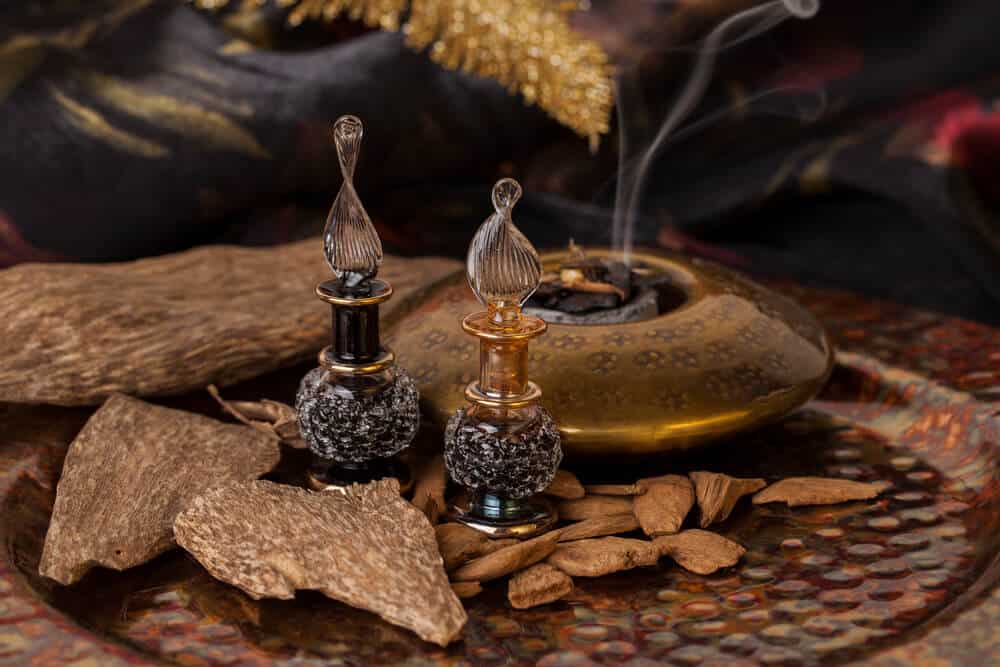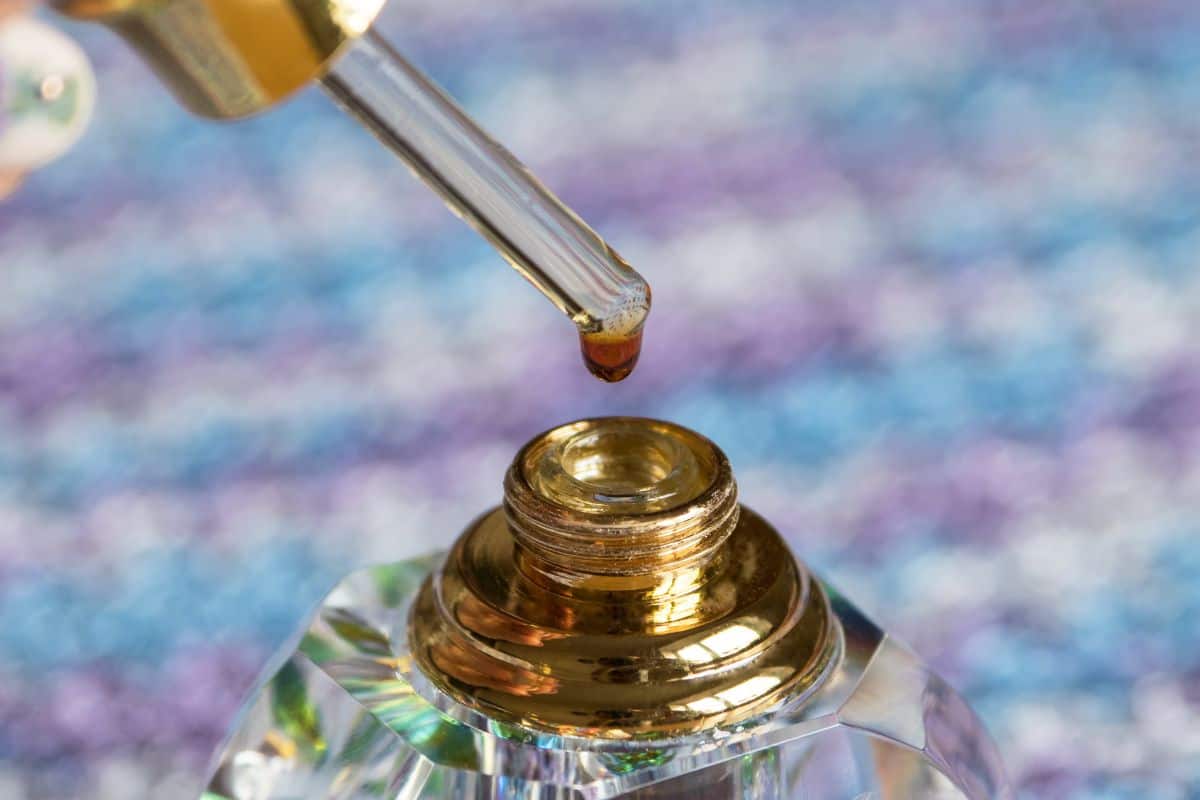Oud is one of the most in-demand and expensive ingredients used in perfume. It also has a very interesting backstory.
So what is Oud? Where does it come from, and how is it used in Oud perfume?

What Is Oud?
All right, first things first.
The name “Oud” refers to both agarwood and its resin extracts. Many perfumers in Western countries use agarwood essential oil under the names “oudh” or just “oud.”
Agarwood (stay with us here) comes from the Aquilaria tree. Actually, thats a type of tree – there are as many as fifteen variations of it, all native to South-East Asia, Bangladesh and India.
But it’s not as simple as “wood taken from an Aquilaria tree”.
What actually happens is more interesting. When one of these trees gets infected with a specific mold (Phialophora parasitica) it reacts to defend itself by producing a dark resin
The wood of the Aquilaria trees is typically very pale. After fighting off the infection though, the areas of the tree that were infected become infused with this dark resin.
This darker, aromatic wood is what’s called Agarwood, and its from this wood that we get Oud.
Is Oud Expensive?
So we can only get Oud from specific types of trees, that have been infected with and successfully fought off a specific mold.
It’s estimated that only about one in ten trees gets infected, and in their natural state the only way to find out out if a tree has Agarwood in its heart is … to cut it down! Agarwood oil contains over 150 complex chemical compounds whose precise balance varies according to the species and age of the tree.
No wonder its so rare and expensive! (According to Fortune, it can sell for $5000 a pound or more!)
There is huge demand for Agarwood, and for Oud oil (which is distilled from the wood with a steam process). Its particularly popular in the middle east, and in asian countries.
It shouldn’t come as any surprise that people have tried all sorts of approaches to me the demand.
Researchers have tried deliberately infecting trees, farming trees instead of finding them in the wild, and of course, producing synthetics.
If you’d like to know more about Oud production, check out this piece from Business Insider:
How Do You Pronounce Oud?
English speakers typically pronounce Oud like the “ood” in “food’. People who speak Middle Eastern languages may pronounce the beginning of the word slightly differently with a phoneme that has no direct equivalent in English (some describe it as sort-of similar to an “ow” sound). Nevertheless, “OOD” is perfectly acceptable.
What Does Oud Smell Like?

The base notes of Oud are unsurprisingly woody, but there is a strong musky undertone that people often react to strongly (positively or negatively). Oud is a unique fragrance with a seductive and strong aroma.
There’s a sweetness to it also, mixed in with the earthy tones.
The oil that is extracted from the Agarwood is used as a base note in a range of perfumes. Given the earthy, musky undertones, its often blended with sandalwood or amber, with spice overtones to add a little extra complexity.
Agarwood chips are often burned as incense. This practice dates back to Biblical times at least (the scent is mentioned in the Song of Solomon).
Like most scents, Oud moves in and out of fashion of course, but this scent has been popular for a very long time (The “Sun King” – Louis XIV is said to been almost addicted to it).
How To Wear Oud Perfume
Perfumes featuring Oud typically feature woody, earthy base notes with a hint of spiciness and a delicate sweetness (imagine sweet berries on a forest floor).
A number of modern designers have tested this out in fragrances like Tom Ford’s Oud Wood or Dior’s Oud Ispahan.
Oud isn’t for everyone – its too powerful and pungent a note for some – so as always, we recommend getting a sample size first and testing how this works on your skin.
Be careful of the season too – this pungent oil reacts strongly to warm skin, so for a lot of people this is a perfect winter perfume.
Before You Go…
If you like the woody notes of Oud, but aren’t a fan of the musk undertones, check out our next article, we’ve rounded up a collection of woody perfumes you’re sure to love!
Related Articles
Bonus Video
If you’re like to know more about Oud perfumes, check out the video below:
All product names, logos, brands, and trademarks are the property of their respective owners
